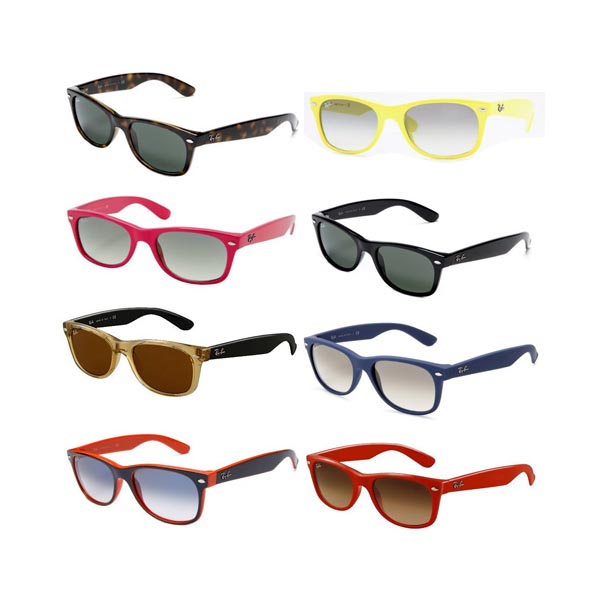Choosing the Right Colour of Sunglasses
5/23/2013
Growing up close to a very popular lake in the region, I had loads of fun experiences by the lakeside, as I’m sure many who grow up or live by the water can identify with. Every summer, my parents would take us to enjoy the hot sunny day by the lakeside. I always enjoyed frequenting the sunglasses stands where they sold all kinds of sunglasses available at that time at very steep discounts and affordable prices. Of particular importance to me was the colour of the glasses in the sunglasses themselves as they registered a unique and pleasurable form of beauty in my eyes that no words could explain or describe.
I have always been mesmerised by the spectacular beauty and the ecstatic magnificence of colours, and if you share this feeling with me, you can probably appreciate why I was so intrigued - as a kid I wondered why some were black, others were brown or blue or even green, yet still others were a complex mixture of all these colours and more. I could understand the fact that the availability of variety was well appreciated, but my problem was the science behind this variety. Physics was one of my favourite subjects in high school and while many people hated it or found it rather challenging to grasp, I found the opportunity to satisfy my curiosity of sunglasses; and I was amazed by my research and discoveries.
 |
| Source |
It is obvious today that most people don't really want to get to know more about the products that they purchase or consume frequently apart from the fact that they work or do the job that they are intended to do. The market is more interested with the instant-coffee approach or plug-and-play kind of products with no hassle about the whys and hows of the products. While this approach may work for several people and even be beneficial in some cases, it is important to have an idea of the science or logic behind the working or operations of a product before purchasing it, in order to make wise or more-informed buying decisions. Having an appreciable knowledge or at least some rough idea of how sunglasses actually work or manage to do their magic so effortlessly, can help you make a better choice at the store that is just right for your eyes or the eyes of your loved ones.
Essentially, the naked eyes is exposed to all the rays of the sun including the harmful ones. The Ultra Violet (UV) rays of the sun have been singled out by many experts to be the most damaging or harmful of all the rays produced by the sun. The UV rays cause damage to the retina and cornea of the eyes and good sunglasses actually eliminate the exposure of UV rays completely from the eyes. When the eyes are exposed to intense light, naturally the iris closes as much as it can followed by squinting. When these measures are not enough to deflect the excess light from the eyes, then the retina may be damaged.
 |
| Source |
With a good pair of sunglasses however, about 97% of the light entering the eyes can be blocked instantaneously while saving the eyes from being overworked or experiencing damage to its essential parts. Certain frequencies of light have been scientifically proven to blur vision while others can enhance contrast. So the colour of glasses in the sunglasses are designed to allow certain frequencies of light to pass through while others are kept at bay. Your choice of the colour of sunglasses will therefore determine which frequencies of light will reach your eyes or not. So effectively, choosing the right colour for your sunglasses enables you to get better eye protection or performance from your sunglasses without any additional accessories needed.
A natural born writer, Stacey Barton writes professionally and for fun across a wide range of niches with particular attention to how classic brands can continue to offer the same product for decades and somehow survive the turbulent and ever changing consumer market.














1 comments
nice shades
ReplyDeleteShow some love!